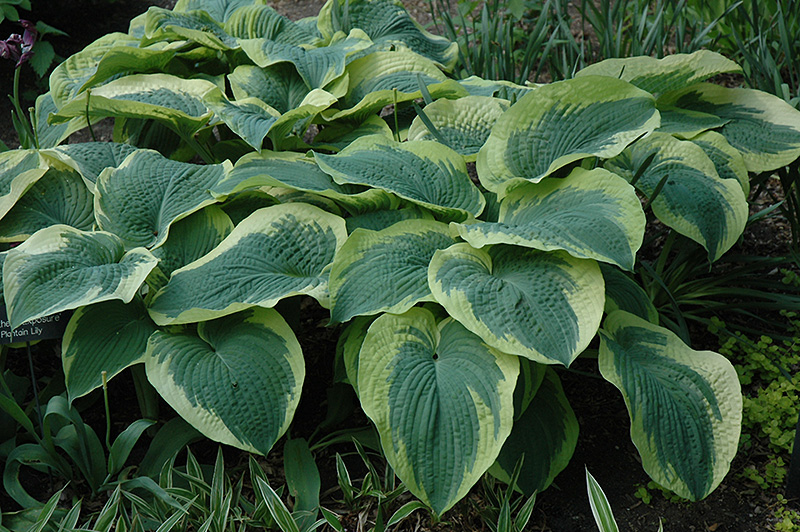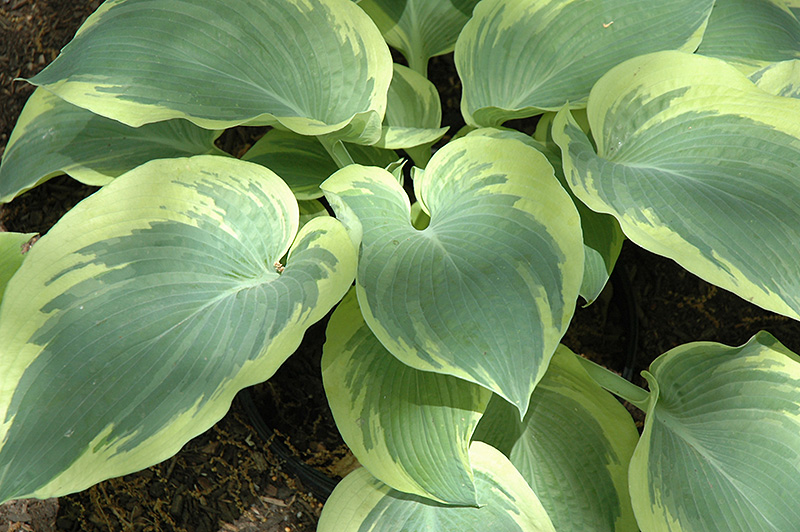Northern Exposure Hosta
Hosta 'Northern Exposure'
Plant Height: 3 feet
Flower Height: 4 feet
Spacing: 4 feet
Sunlight:
![]()
![]()
Hardiness Zone: 2
Other Names: Plantain Lily, Funkia
Description:
Hardy, durable clump-forming perennial. Huge 13", blue-green leaves with 2" wide, yellow to cream margins on vigorous plant. White, bell shaped flowers. Attracts hummingbirds.
Ornamental Features
Northern Exposure Hosta features dainty spikes of white bell-shaped flowers rising above the foliage in mid summer. Its attractive enormous textured heart-shaped leaves remain bluish-green in color with distinctive creamy white edges throughout the season.
Landscape Attributes
Northern Exposure Hosta is a dense herbaceous perennial with tall flower stalks held atop a low mound of foliage. Its wonderfully bold, coarse texture can be very effective in a balanced garden composition.
This is a relatively low maintenance plant, and is best cleaned up in early spring before it resumes active growth for the season. It is a good choice for attracting hummingbirds to your yard. Gardeners should be aware of the following characteristic(s) that may warrant special consideration;
- Insects
Northern Exposure Hosta is recommended for the following landscape applications;
- Accent
- Mass Planting
- General Garden Use
- Groundcover
Planting & Growing
Northern Exposure Hosta will grow to be about 3 feet tall at maturity extending to 4 feet tall with the flowers, with a spread of 4 feet. When grown in masses or used as a bedding plant, individual plants should be spaced approximately 4 feet apart. Its foliage tends to remain dense right to the ground, not requiring facer plants in front. It grows at a medium rate, and under ideal conditions can be expected to live for approximately 10 years. As an herbaceous perennial, this plant will usually die back to the crown each winter, and will regrow from the base each spring. Be careful not to disturb the crown in late winter when it may not be readily seen!
This plant does best in partial shade to full shade. Keep it well away from hot, dry locations that receive direct afternoon sun or which get reflected sunlight, such as against the south side of a white wall. It prefers to grow in average to moist conditions, and shouldn't be allowed to dry out. It may require supplemental watering during periods of drought or extended heat. It is not particular as to soil type or pH. It is somewhat tolerant of urban pollution. Consider applying a thick mulch around the root zone in both summer and winter to conserve soil moisture and protect it in exposed locations or colder microclimates. This particular variety is an interspecific hybrid. It can be propagated by division; however, as a cultivated variety, be aware that it may be subject to certain restrictions or prohibitions on propagation.


